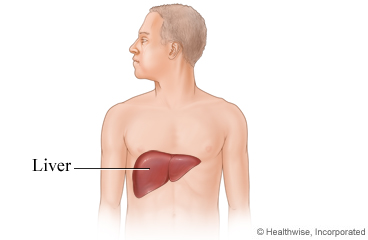What is it?
A GGT (gamma-glutamyl transferase) is a test to look for GGT in your blood. GGT is a protein (enzyme) that speeds up chemical reactions in the body. It is found mainly in the liver and the bile ducts. Gamma-glutamyl transferase is also called gamma-glutamyl transpeptidase.
Why is this test done?
The test is done to check for alcohol problems, liver disease, and bile duct blockage. It is usually done along with other tests, such as alanine aminotransferase, or ALT.
How do you prepare for the test?
In general, there's nothing you have to do before this test, unless your doctor tells you to.
How is the test done?
A health professional uses a needle to take a blood sample, usually from the arm.
How long does the test take?
The test will take a few minutes.
What happens after the test?
- You will probably be able to go home right away.
- You can go back to your usual activities right away.
Follow-up care is a key part of your treatment and safety. Be sure to make and go to all appointments, and call your doctor if you are having problems. It's also a good idea to keep a list of the medicines you take. Ask your doctor when you can expect to have your test results.
Current as of: September 25, 2025


